Para Sports
‘If I could go back, I’d break my neck again’
My life changed in November 2010.
I was with a group of friends at one of their houses, having a swim.
We were jumping on each other’s shoulders, just mucking around, pretty low key, and one of my friends tried to jump over me.
He accidentally kneed me in the back of the head and my neck snapped forward and I went underwater.
I popped back up instantly and I just knew something was wrong, so I called out to my friends to get me out of water, then laid face down pretty much waiting for someone to drag me out of the pool.
I told them I needed them to call an ambulance. They asked ‘what’s up?’ and I told them ‘I just can’t feel my legs, I can’t feel anything?’
It’s so long ago and my life is so different, that it’s hard to remember exactly how I felt at the time.
But now? Honestly, if I could go back to when I broke my neck, I’d break it again. I’ve got an awesome life.
‘It’s all good, bro’
I went first to the ICU at Royal North Shore Hospital and I was there for 10 days, until they could get me down to the spinal ward, where all the rehabilitation work began.
That’s when I started thinking that there wasn’t going to be too much progress.
They try and keep the hope going of ‘see what happens over the next couple years’, but those miracle stories you hear about the people that ‘fought adversity to walk again’?
You’ve either got the function and your body is going to allow you to do it or not.
I had a complete break through my spinal cord. So that was it. I have no feeling from the chest down.
It’s basically just what you have is what you’ve got and make the best out of that.
Obviously, I had my bad days, but overall, I was actually pretty good.
Even while I was in ICU I called up my mate who did it and told him ‘do not worry, it’s no big deal. It’s all good, bro.’
I went to the spinal rehab hospital at Ryde and spent another five or six months there learning how to transfer in and out of bed, how to go to the bathroom, shower myself, hold a toothbrush, use cutlery. So many things to learn.
‘Not walking is the bare minimum’
I found rehab quite easy because there were a lot of other young people in there. The hardest part was when I went home afterwards.
I was reading something recently talking about how everyone’s struggling with isolation because of COVID. I lived that 10 years ago.
When you have a severe spinal injury you go home and you’re isolated. You might see your friends on weekends, but during the week, everyone was busy. Then on weekends everyone’s going out to the city, going out to parties.
It just wasn’t that simple for me. I couldn’t get an hour and a half train ride down to the city and party with my mates, because how am I going to get home? Who’s going to look after me?
When I went home was at first was really tough.
Spasticity is a part of this that people aren’t aware of – they think you just can’t walk.
View this post on Instagram
Not walking is the bare minimum. I had so much spasticity in my body every time I tried to lean forward, I would get thrown backwards. Every time I tried to transfer – hop into the car or hop into bed – my body would throw me over and my legs would kick out.
It varies with people with spinal cord injuries. Some will have heaps some will have none, some will manage it with tablets, some don’t get anything.
I have baclofen pump in my body and there’s a catheter that goes up my spine that releases a medication.
I’ve had a lot of complications with that as well. I’ve almost overdosed on it from getting too much and nearly died twice.
Once, I received a huge dose of it in hospital and they found me with four or five breaths a minute, my heartrate was right down.
‘Ready to stop sitting at home doing nothing’
Wheelchair rugby was the best thing that happened to me. It changed my life as dramatically as the accident had.
At school I’d played football, rugby union and AFL, touch footie, I’d get into any sport without wanting to do anything at a serious level.
A mate I did rehab with told me to give it a try so we went to Gladesville.
I got picked up lifted into the chair, stuck some gloves on, started pushing and realised this was something that I want to keep doing.
That was 2012. All of sudden, out of nowhere, I was in a community with people that knew what you were going through or were going through the same stuff at the same time.
Some of the guys had been in a chair for a long time but you’re on a level playing field when you’re playing wheelchair rugby – it’s not like being out in society where you push around in a day chair, struggling to get things out of the fridge or get around town, you’re on a flat court.
You forget about all the other issues in life and you’re just playing the sport. You feel normal again.
When I first saw it played, I didn’t really care. I had so many other things going through my head. So many other things to think about and worry about.
When I did get into, and I started I was ready for something new. I was ready to stop sitting at home doing nothing.
View this post on Instagram
What I really love about the sport is it’s quite tactical. People don’t really see it. They also don’t really see how serious we are about it. We do our research on different countries, we’re watching games or breaking them down, strategising how we’re going to play in certain lineups. There are a lot of big hits, but it’s a very tactical sport.
If you’re watching the Steelers play and you don’t understand it you might wonder why one or two players have all the function and carry the ball.
There is a whole classification system which means each player is worth a certain number of points and you’ve only got eight points on court. So the guys with more function, like Ryley Batt, will be worth three and a half points – almost half your team.
It doesn’t matter how little function you have or how much you have as long as you’re the best in your classification, that’s what you want to strive to be.
I’m a low functioning player – 1.5 points – and I don’t need to carry the ball and score goals, I need to block for the Ryley Batts and Chris Bonds – the main ball carriers – and let them score the goals.
‘I lost all the function in my body’
I cracked the Australian development team in 2013 but was released just before the Paralympics in 2016.
The coaches later told me they regretted dropping me for Rio, and I probably should have been along for the ride, which was hard to hear. But it was also a huge encouragement to start preparing for the world champs and Tokyo 2020.
In early 2016 I went to my Steelers teammate Andrew Edmondson’s wedding and I met his wife’s cousin, Caroline, who is now my fiancé.
Then in September 2016 I got hit by myasthenia gravis, an autoimmune disease. The disease has nothing to do with my spinal cord injury. I was just very unlucky.
I was in Hong Kong on my way to Canada to see Caroline when I lost my eyesight.
I went to the hospital in Hong Kong for three days, which was terrible, just a nightmare because of the language issues, and then returned home to started a long process of treatment, steroids at first, synthetic plasma injections and immunosuppressive medication.
All the medications messed me up. I put on a lot of weight and when my disease was really bad I couldn’t open my eyelids without using my finger to hold them up.
I lost all the function in my body so I couldn’t lift my arms up in the air anymore. Lost the movement of my wrists. I needed so much help. I couldn’t transfer in and out of bed.
I’ve thought a lot over the past five years that this disease would stop me realising my Paralympics dream.
I have a lot of ongoing issues with it still. I have a no immune system so I get a lot of bladder infections because of it and I’m running out of antibiotics that still work for that, while there are antibiotics that flare up the symptoms and make them worse.
But I was determined that as soon as I saw the disease out, I would be ready to go so I could come back in and crack that Aussie squad again.
I started going out in my rugby chair and pushing around a netball court, just trying to get some fitness up. I couldn’t even see without leaning my head right backwards, but the work kept me sane.
In 2018 I managed to get back onto the Australian team for a trip to Las Vegas, and then travelled again in 2019. I stayed on the team for 2020, was all ready to go, and then, with COVID, it was put on hold.
We only really got told about our selection around three weeks before we flew out because our training camps kept getting cancelled.
It was just such a big sigh of relief once I got it on because this is everything I’ve been fighting for, everything I’ve been working for really since the autoimmune disease hit.
COVID is a higher risk for me, not having an immune system. So I try to be as safe as possible. But I just thought that I wasn’t going to pass up Tokyo.
I weighed up the risks and everything and just want to come no matter what.
Here we’re isolated. Everyone’s safe. We’re in masks all the time. There are all sorts of protocols that we’re doing that no other countries do. We’re not using the dining hall that the other countries are going to.
We’re wearing masks all the time. Everyone had to be vaccinated. We’re getting daily COVID checks. The team doctors are looking after us, the dietitians are working overboard trying to get all these foods. We don’t have to worry about anything we just come here and do our job.
‘Without mum or dad, I’d be stuffed’
Wheelchair rugby changed my life but without my mum Jamie and dad Mike I would have been stuffed, especially when I got the autoimmune disease.
They’ve done so much for me, the amount of work they put into just renovate the house and get it ready for me.
Dad was driving me to training when I couldn’t see. He was helping me get in and out of my rugby chair, mum sews my rugby gloves. They’re feeding the perfect food so I’m staying as healthy as possible.
Caroline is a rock in my corner. She keeps me grounded and mentally sane.
She is the world to me, helps me out so much. She’s just an amazing human being and without her. I don’t know how I would have even gotten here or stayed so positive in my attitude.
And I’ve got really good friends. Especially when I first had my accident I needed a lot of help and they really supported me through those early years after I broke my neck.
Without that support from people close to you would get pretty depressed. At first I felt like burden to everyone around me.
But as soon as I started playing rugby, my body just got stronger. I had so much more function and I was able to become independent.
And all of a sudden I didn’t need help with stuff, didn’t need carers.
It wasn’t just that I got physically independent. As soon as you mentally accept your situation then life becomes easier
I know a lot of guys with less function than me that do so much and live normal lives.
I definitely think there’s a misconception on disability by the general public. But hopefully the Paralympics changed a few of those opinions.
Obviously was happened to me was a nightmare for my parents. All of a sudden their whole worlds flipped upside down, not just mine.
But I think once they saw me improving, and saw that I’m travelling the world, playing sport, getting paid to play at a high level, now it’s normal and not that big a deal. Having an injury and being in a wheelchair is not that big a deal.
People look at you and feel sorry for you but I travel the world playing sports. That’s pretty sweet.
If I could get rid of the myasthenia gravis that’s the one thing I’d love to get rid of.
But the actual spinal injury, I’d break my neck every other day of the week, honestly – I’m very happy with my life now.
More about: Para Sport | Paralympics | Richard Voris | Ryley Batt | Wheelchair rugby
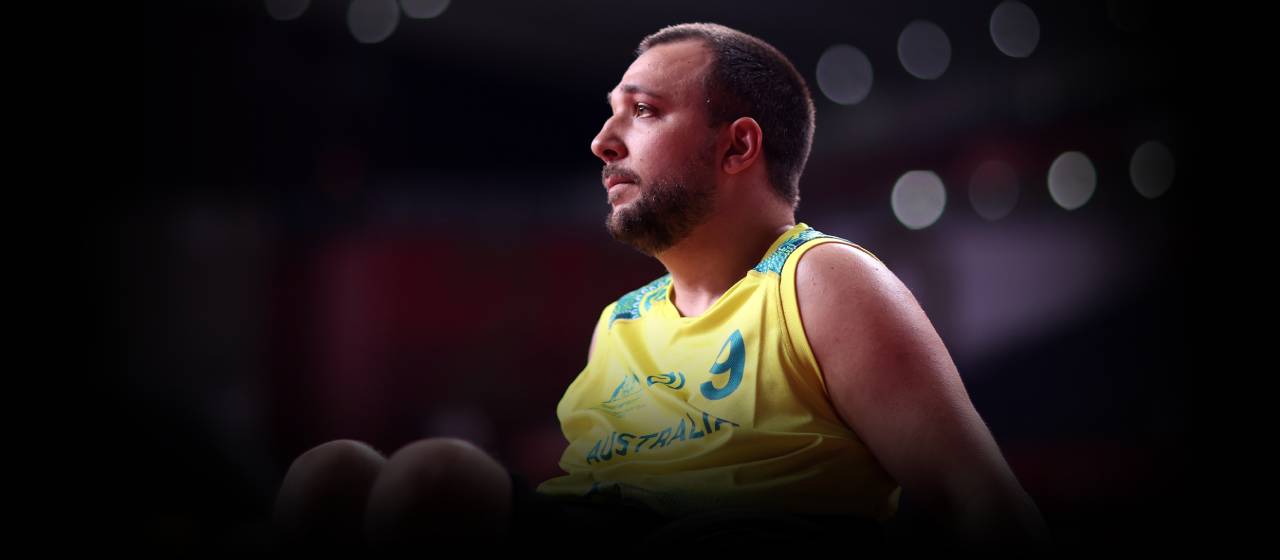
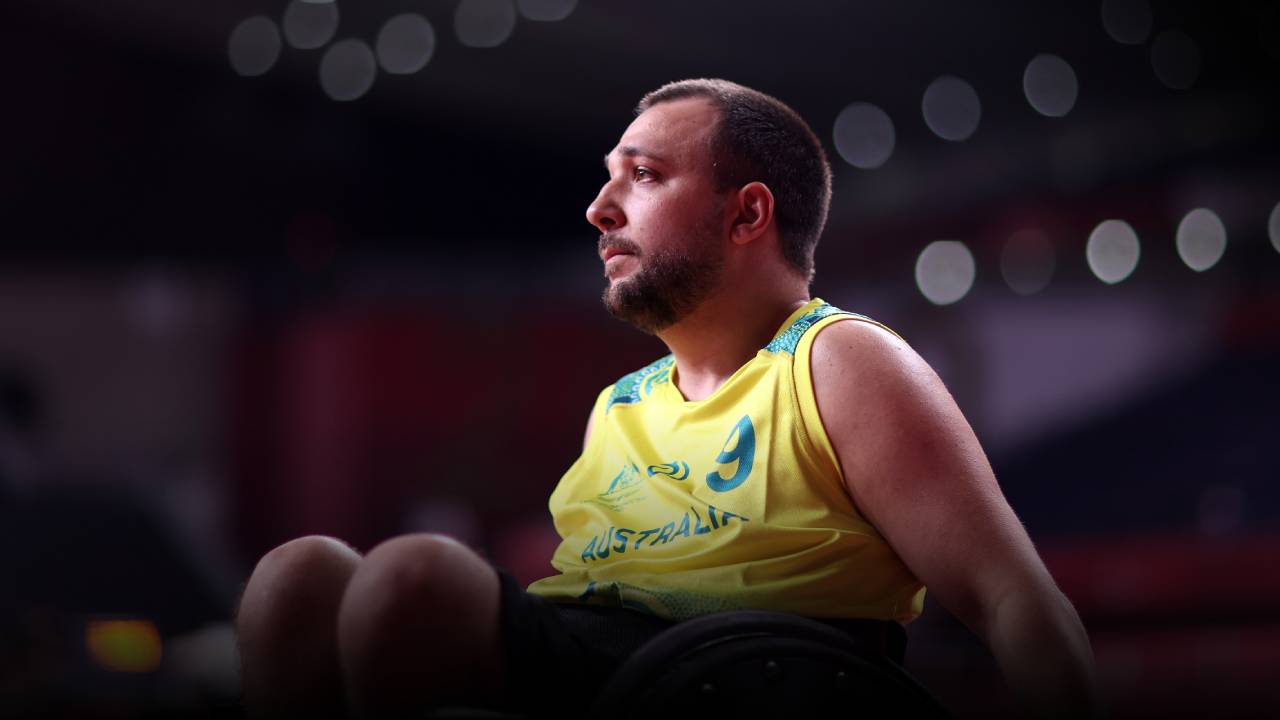
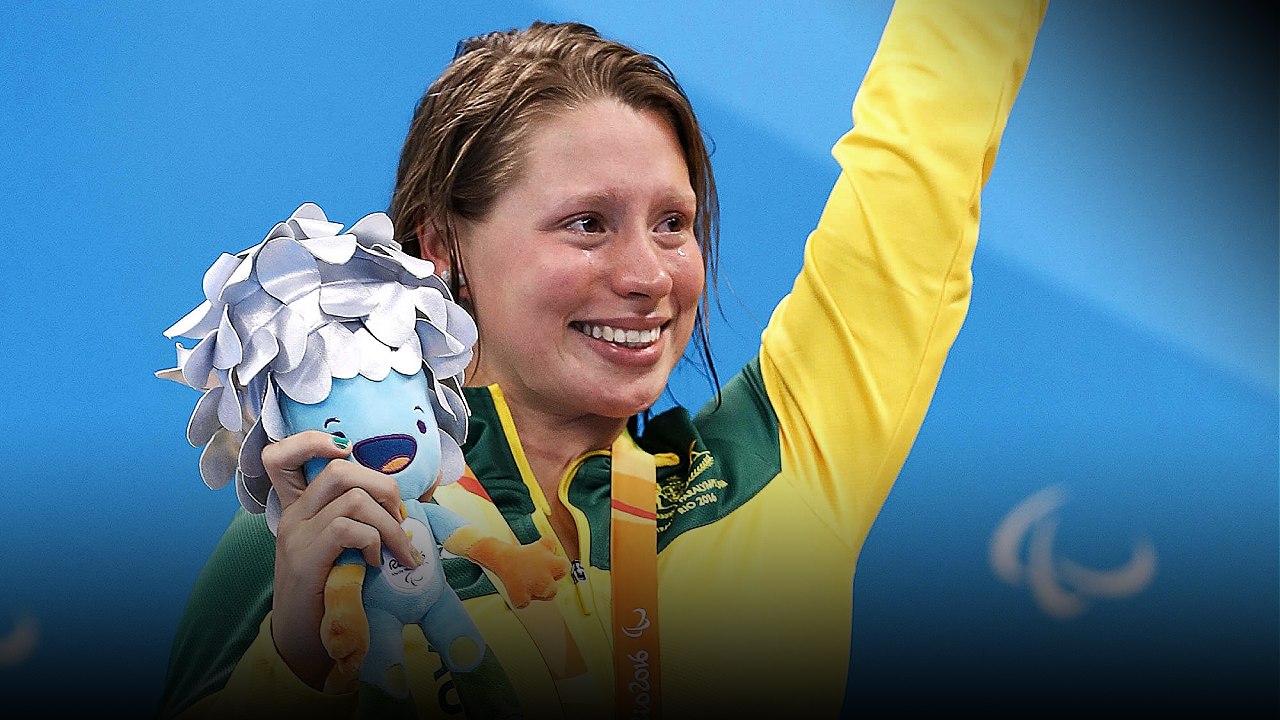
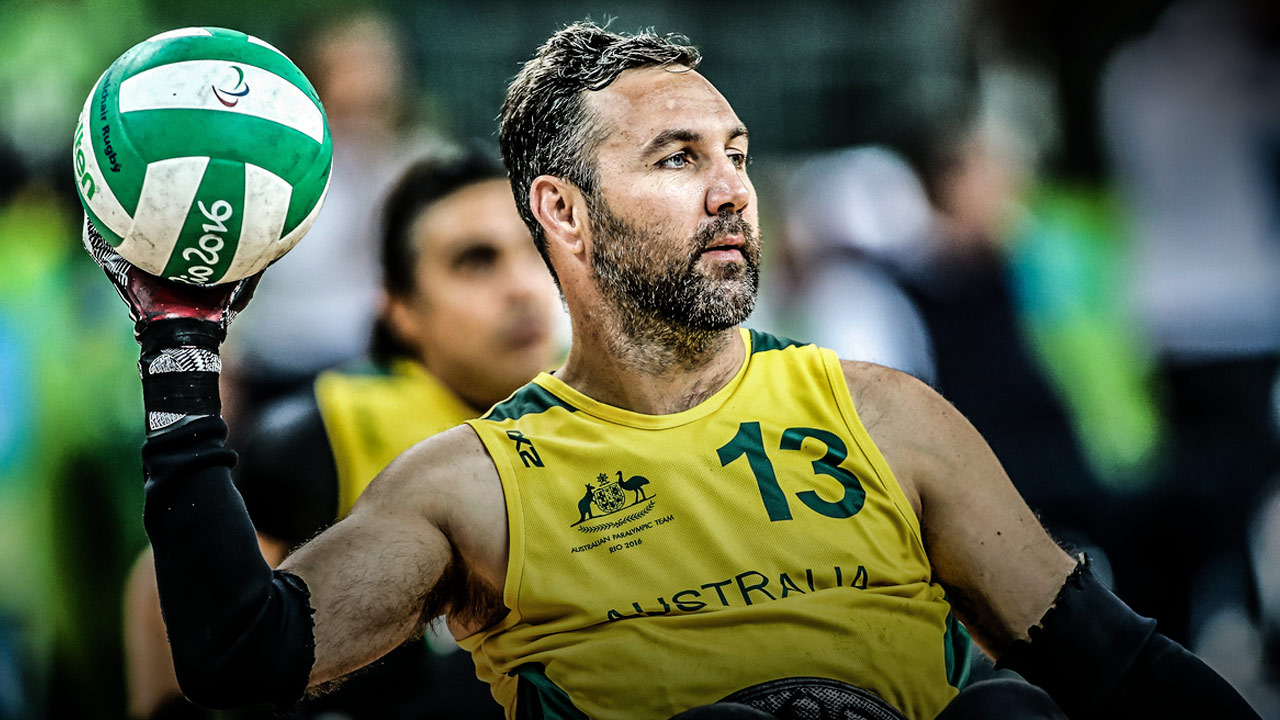
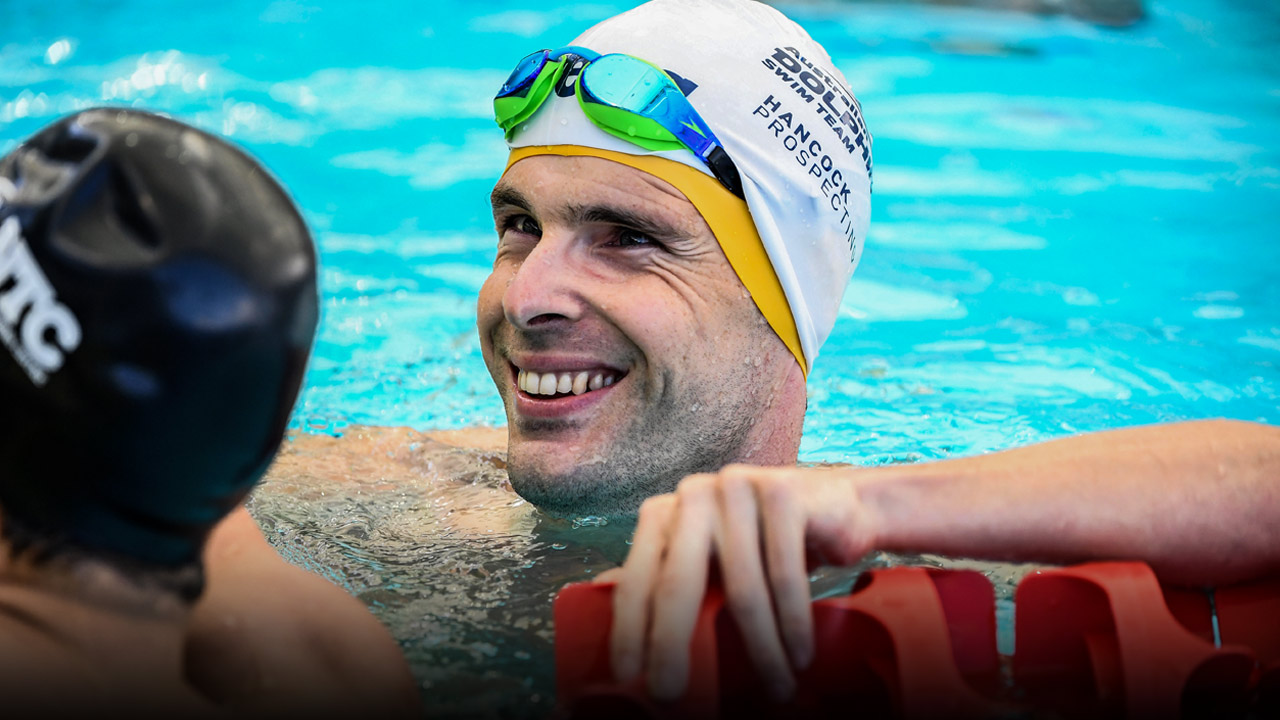
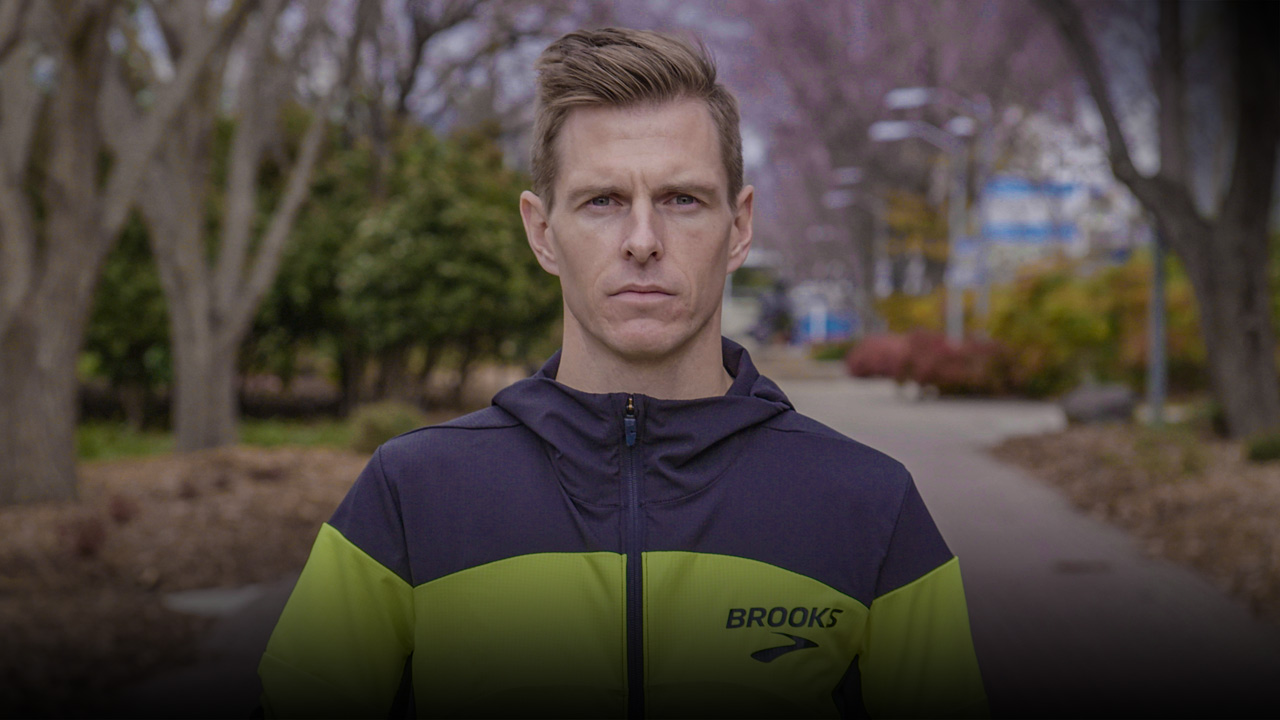
 Load More
Load More